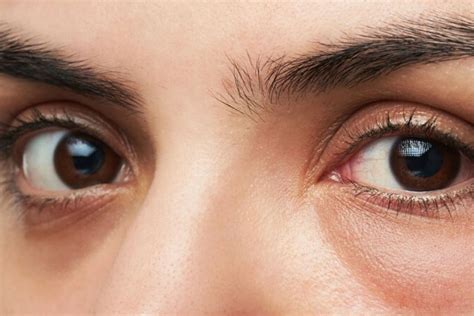waarom pmt aan lv | PMT, werkt het en hoe dan?
$274.00
In stock
Introduction:
Aggressive behavior is a complex issue that can significantly impact an individual's life, their relationships, and their overall well-being. When this aggression co-occurs with a mild intellectual disability (LVB – Licht Verstandelijke Beperking in Dutch), the challenges are compounded. Traditional therapeutic approaches may prove less effective, necessitating specialized interventions that cater to the specific cognitive and emotional needs of this population. Psychomotorische Therapie (PMT), or Psychomotor Therapy, offers a promising avenue for addressing aggression in individuals with LVB. This article will delve into the reasons why PMT is a valuable intervention for individuals with aggression and LVB, exploring its principles, techniques, and evidence base, while addressing common questions and concerns surrounding its application.
Understanding the Interplay: Aggression and Mild Intellectual Disability (LVB)
Before exploring the benefits of PMT, it's crucial to understand the complexities of aggression within the context of a mild intellectual disability. Individuals with LVB often face challenges in:
* Cognitive Functioning: They may have difficulty with abstract thinking, problem-solving, planning, and impulse control. This can make it harder for them to understand the consequences of their actions and regulate their emotions.
* Communication Skills: Expressive and receptive communication deficits are common. This can lead to frustration and miscommunication, escalating into aggressive outbursts. Difficulty expressing their needs and understanding others can create a breeding ground for conflict.
* Social Skills: Individuals with LVB may struggle with social cues, understanding social boundaries, and navigating social situations. This can lead to social isolation, frustration, and increased vulnerability to negative influences.
* Emotional Regulation: Difficulty identifying, understanding, and managing emotions is a common challenge. This can lead to emotional dysregulation and impulsive reactions, including aggression.
* Coping Mechanisms: They may lack effective coping mechanisms for dealing with stress, frustration, and anger. This can lead to reliance on maladaptive strategies, such as aggression.
These challenges, combined with potential experiences of social exclusion, bullying, and discrimination, can contribute to the development and maintenance of aggressive behavior. Traditional therapeutic approaches that rely heavily on verbal processing and abstract reasoning may not be as effective for this population. Therefore, interventions like PMT, which emphasize experiential learning and body-oriented techniques, can offer a more accessible and engaging pathway to change.
What is Psychomotor Therapy (PMT)?
Psychomotor Therapy (PMT) is a form of psychotherapy that uses movement, physical activity, and body awareness as primary tools for exploration, expression, and change. It acknowledges the interconnectedness of the mind and body, recognizing that emotional and psychological states are reflected in our physical posture, movement patterns, and physiological responses. PMT aims to improve psychological functioning by addressing these physical manifestations of emotional distress.
Key Principles of PMT:
* Body Awareness: Developing an awareness of one's body sensations, posture, and movement patterns.
* Emotional Expression through Movement: Using movement to express and process emotions that may be difficult to verbalize.
* Behavioral Experimentation: Exploring new ways of behaving and interacting in a safe and controlled environment.
* Self-Regulation: Learning to manage emotions and impulses through physical techniques and strategies.
* Integration of Mind and Body: Connecting physical experiences with emotional and cognitive understanding.
Why PMT for Aggression in Individuals with LVB?
PMT offers several advantages for addressing aggression in individuals with LVB:
* Accessibility: PMT bypasses the limitations of verbal therapy by utilizing movement and physical activity, making it more accessible to individuals with cognitive and communication challenges.
* Experiential Learning: PMT provides opportunities for experiential learning, allowing individuals to learn through direct experience rather than abstract reasoning. This can be particularly effective for individuals with LVB who learn best through hands-on activities.
* Emotional Regulation: PMT provides practical tools for managing emotions and impulses. Through movement-based exercises, individuals can learn to recognize and regulate their physiological responses to stress and anger.
* Improved Self-Awareness: PMT helps individuals develop a greater awareness of their body sensations, emotional states, and behavioral patterns. This self-awareness is crucial for identifying triggers for aggression and developing alternative coping strategies.
* Enhanced Communication: While not solely focused on verbal communication, PMT can improve non-verbal communication skills, such as body language and facial expressions. This can enhance social interactions and reduce misunderstandings.
* Increased Self-Esteem and Confidence: Successfully engaging in physical activities and mastering new skills can boost self-esteem and confidence, reducing feelings of inadequacy and frustration that can contribute to aggression.
* Development of Coping Strategies: PMT teaches individuals practical coping strategies for managing stress, frustration, and anger. These strategies can include relaxation techniques, breathing exercises, and physical activities that promote emotional regulation.
PMT Interventions for Aggression: Specific Techniques and Examples
PMT interventions for aggression are tailored to the individual's specific needs and goals. Some common techniques include:waarom pmt aan lv
* Body Awareness Exercises: These exercises help individuals become more aware of their body sensations, posture, and movement patterns. Examples include:
* Body Scan: Focusing attention on different parts of the body, noticing sensations such as tension, relaxation, or temperature.
Additional information
| Dimensions | 9.2 × 1.4 × 1.5 in |
|---|








